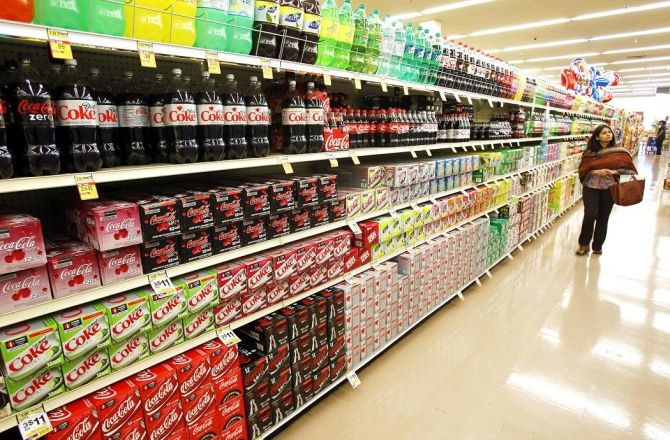Soda Elevates and Coffee Lowers Stroke Risk

Drinking soda, which has previously been found to increase the risk of weight gain, diabetes, high blood pressure, high cholesterol, gout and coronary artery disease, has now been linked to a higher risk of stroke.
Researchers at Cleveland Clinic's Wellness Institute and Harvard University revealed that a greater consumption of sugar-sweetened and low-calorie sodas increases the risk of stroke, whereas the consumption of caffeinated or decaffeinated coffee was linked to a lower risk.
"Soda remains the largest source of added sugar in the diet," lead author Dr. Adam Bernstein at Cleveland Clinic's Wellness Institute said in a statement released on Friday. "What we're beginning to understand is that regular intake of these beverages sets off a chain reaction in the body that can potentially lead to many diseases – including stroke."
The study, published in the American Journal of Clinical Nutrition, analyzed soda consumption among 43,371 male and 84,085 female participants in long term studies from the 1980s to 2008 and found that men and women who had more than one serving of sugar-sweetened soda a day had a greater chance of developing high blood pressure, high blood cholesterol and lower levels of activity.
The findings showed that participants who drank low-calorie sodas had a higher body mass index and a higher incidence of chronic disease.
Researchers said that sugar in soda may cause blood glucose and insulin levels to spike, and over time may lead to inflammation, glucose intolerance and insulin resistance, and these bodily changes influence risk factors for ischemic stroke, including plaque stability, thrombosis and atherosclerosis.
Researchers noted that women appeared to have a higher risk for ischemic stroke compared to men.
In comparison to soda, researchers said that coffee contains antioxidants that may reduce the risk of stroke, like chlorogenic acids, lignans and magnesium, and when compared to one serving of sugar-sweetened soda, researchers found that one serving of decaffeinated coffee was associated with a 10 percent lower risk of stroke.
The findings also show that people who consumed sugar-sweetened soda more frequently were also more likely to eat whole-fat dairy products and red meat, which scientists have associated with an elevated risk for premature death from diabetes, heart disease or cancer.
While soda was not the only thing in participants’ diets that contributed to poor health, researchers had controlled for other factors in the analysis to determine that even soda alone contributed to a greater stroke risk.
"According to research from the USDA, sugar-sweetened beverage consumption has increased dramatically in the United States over the past three decades, and it's affecting our health," Bernstein concluded. "These findings reiterate the importance of encouraging individuals to substitute alternate beverages for soda."
Published by Medicaldaily.com



























